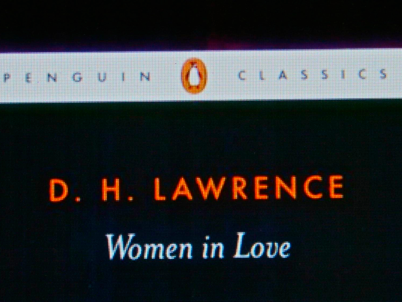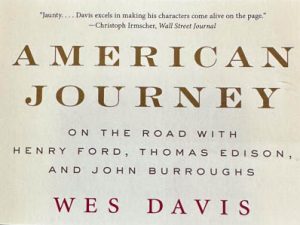
This classic by D.H. Lawrence has been on my to-be-read list for probably twenty years. The best thing I can say about it is that it is off my list, finished, and I can move on to reading something I will enjoy more! I got so bogged down in the middle, I almost abandoned the project. I persisted to completion more out of stubbornness than faith that it would improve. Indeed, the actual ending of complete disillusionment could in itself have been powerful, I suppose, if I had ever been made to like the characters to begin with.
The book gets at least two stars from me for the opulent use of embroidered language. His vocabulary was outstanding and he applied words in unique ways. Here is a list he often employed: abject, ignominiously, turgid, obsequiously, suffused, lambent, solicitous, supple, abominable, sinuous, indomitable, etc. But I’ll never again read the words laconic, sardonic or furtive without thinking of this author as they were used so often I wanted to scream! He seemed to intentionally reuse words so frequently that it became impossible for me to offer the book more than three stars, and that for his agile writing ability.
Here are some bits to give you the flavor:
“fatal exultation”
“ecstasy of reduction”
“flowers of mud”
“ineffable rift”
“rhapsodic intensity”
“the darkness of his loins”
“all life is a rotary motion”
“a milestone of lurking memories”
“he looked shining, like sun on frost”
“The most normal people have the worst subterranean selves.”
“a hard metallic wakefulness”
“into the unfolded navel of eternal snow”
“the rabbit ran around the courtyard like a furry meteorite”
“possessions, possessions, bullying you and turning you into a generalization”
“You must leave your surroundings sketchy, unfinished, so you are never contained, never confined, never dominated by the outside.”
“The greatest power is one that is subtle and adjusts itself, not one which blindly attacks.”
“To desire is better than to possess.”
This book is set in a town of miners, and there Lawrence mines the human psyche’s disconnection with society. It was written in 1920, just after WWI, when there was emotional turmoil and a sense of the meaninglessness of life. This is coupled with the beginnings of women’s liberation, in a backdrop of modernization and industrialization that tended to in-humanize people. It is an intensely introspective and self-conscious work of vacillating, selfish characters who do not do much but examine themselves. I found the obtuse lack of plot, without action or story development difficult, but could have embraced that if I agreed with the symbolism, the insights into human character, and the general themes portrayed. I do not consider marriage to be an impediment to independence as I am both married and independent, and I would definitely argue his overt parallels between love and death. This unnecessarily verbose, ill-titled book, was censored in its day which is presumably how it got it’s fame, but it is tame by today’s standards. At best, I can acknowledge this book with it’s conspicuously lyrical, narcissistic style, as a period piece of inner searching and disillusionment, and important to the history of literature.





